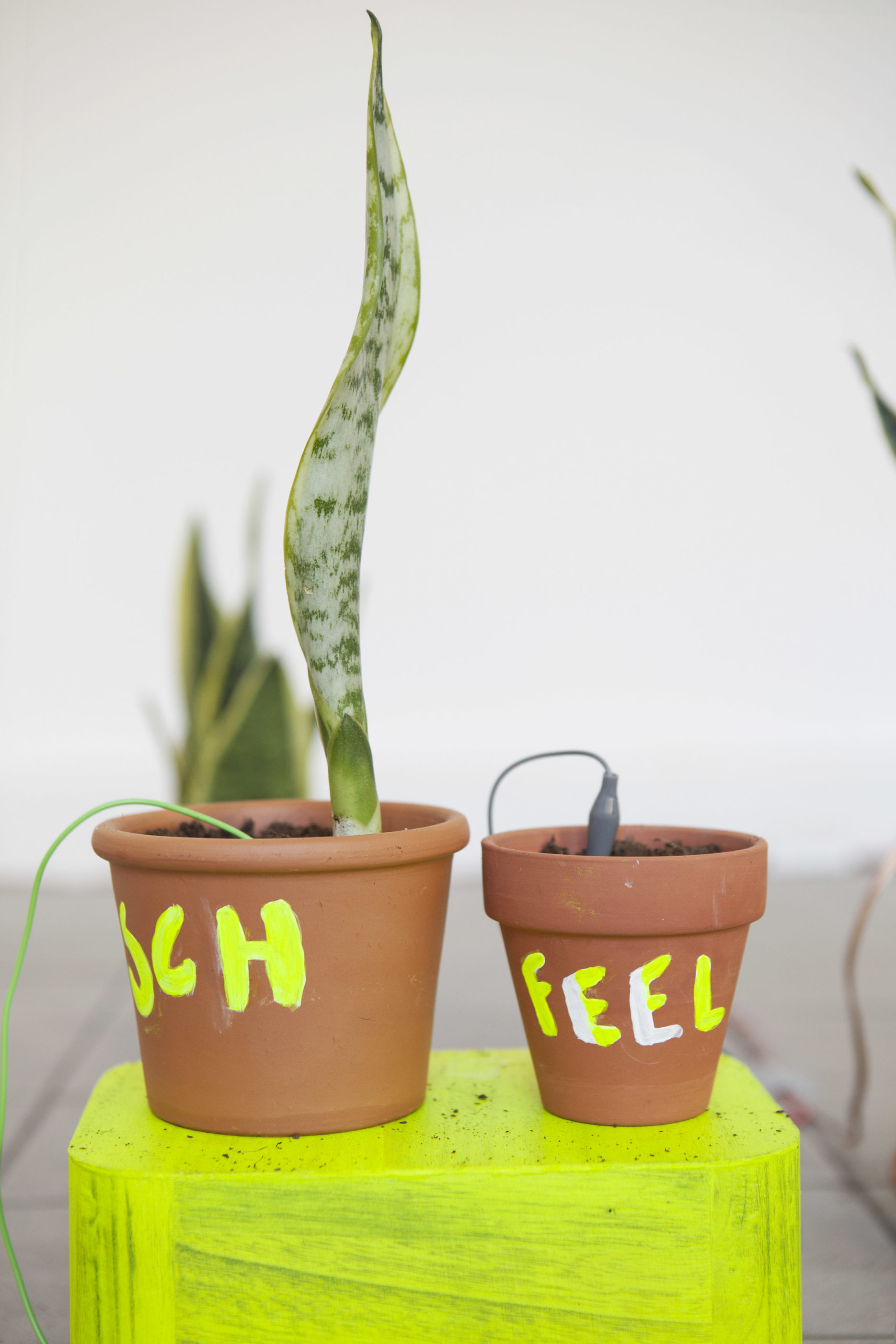DELPHI 2.0. (phyto-pythia)
Installation Mixed Media
2022
plants, electronics, loudspeakers, projection
created in the context of the solo show “Delphi 2.0 (Phyto-Pythia)”, Mz* Baltazar’s Lab
Thank you for the support: Bildrecht, Kulturkommission Brigittenau
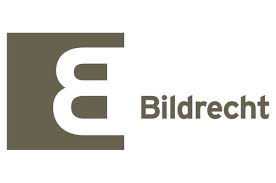
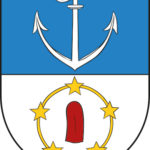
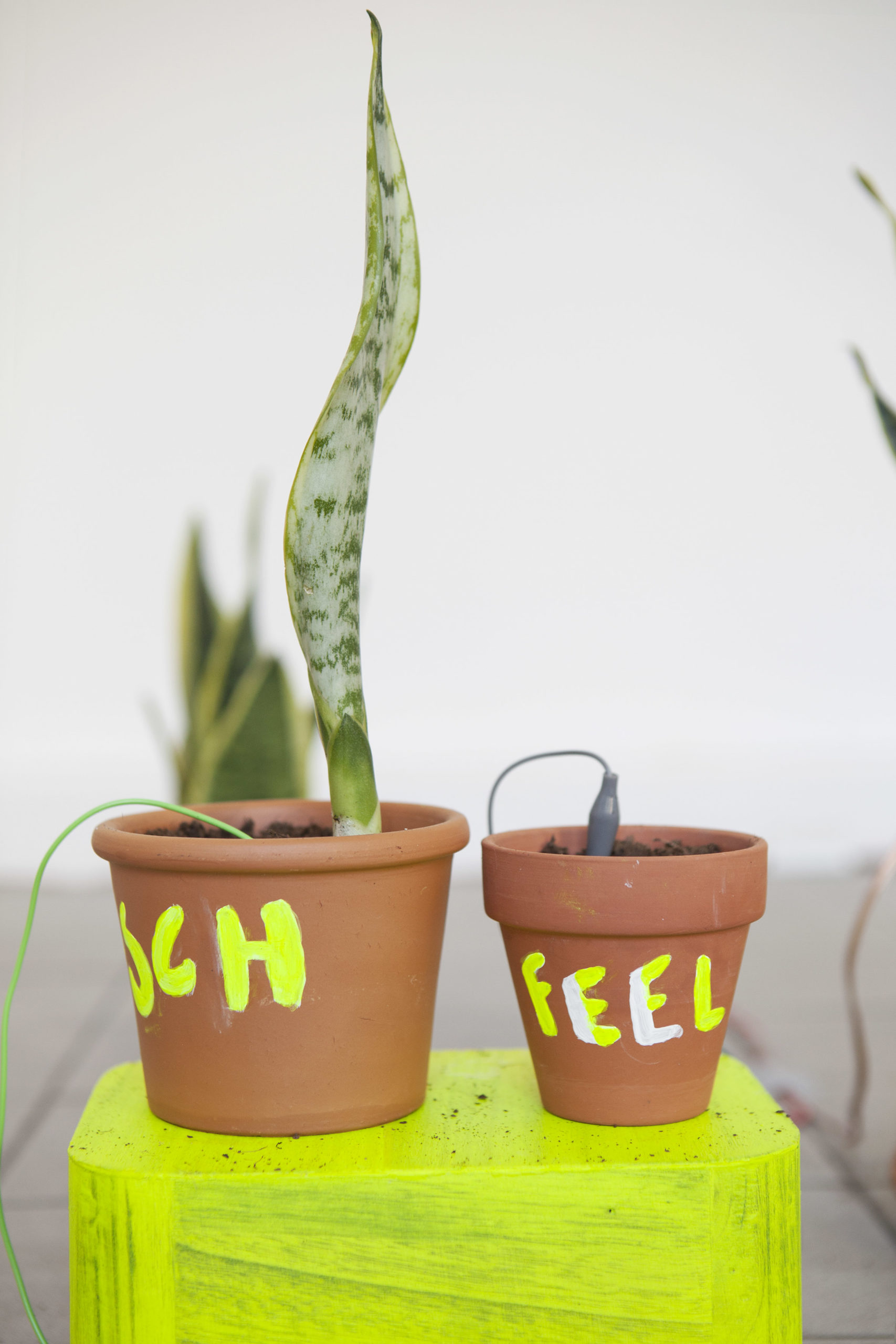
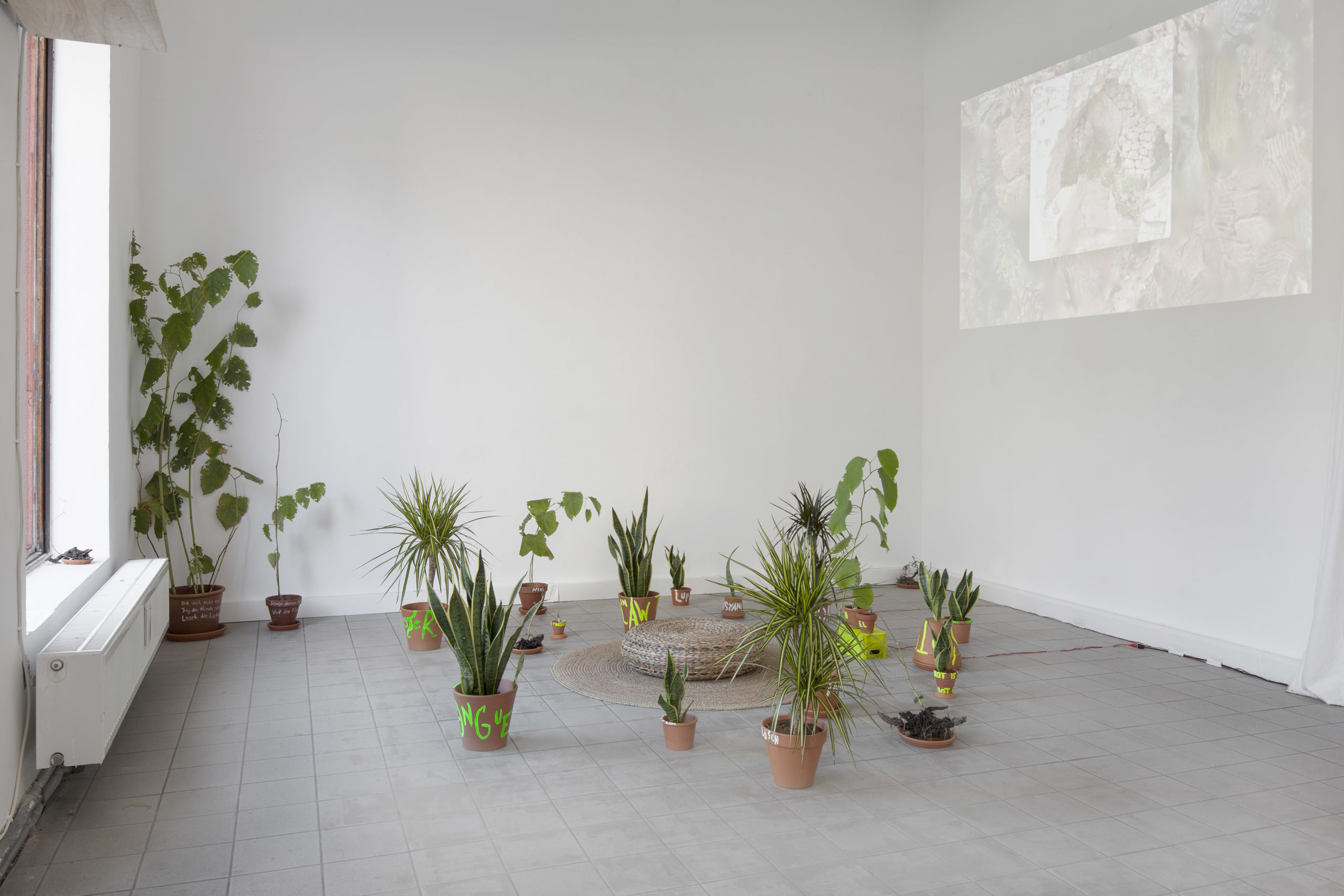
Recognize yourself
a contribution to Lena Violetta Leitners exhibition
„Delphi 2.0 (Phyto-Pythia)“
Lena Violetta Leitner’s artistic work deals with various aspects of the institution of the oracle and the associated dimension of the future. Especially the here and now is potentially characterized by great uncertainties as well as life-changing crises, so it is essential for the artist not to let ourselves be guided by associated fears and uncertainties, but to work against them with the power of the collective.
Experimentation, inventiveness and dialogue run like a thread through Leitner’s artistic-creative work. Her research for the respective projects is usually based on years of research and manifests itself in installations, interventions or performances.
In the course of a residency in Athens, the artist took a closer look at the oracle site of Delphi. An area steeped in the history of Greek antiquity, to which many people made pilgrimages and sought answers to their great questions. Leitner made 3D scans of the fragments still visible today on the spot and then superimposed them with recordings of her screen as well as technically produced glitches. The resulting video work invites the viewer in an immersive world, pointing on the one hand to processuality and change – aspects that go hand in hand with prophecy – and on the other to a status quo.Because the cult site no longer carries all the information, many are broken and destroyed, errors or uncertainties can creep in, bringing systemic openness into awareness.
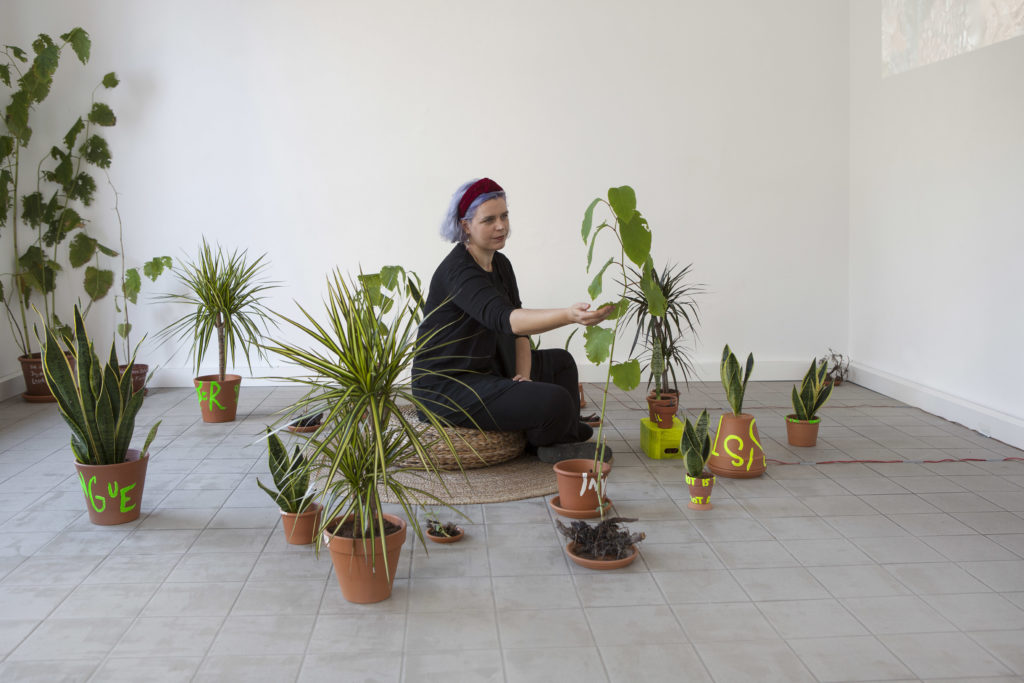
With a “PLANT ORACLE” the artist not only transfers the idea of the oracle, but creates an interactive installation consisting of plants. If the visitor positions themself in the midst of the plants, some of which originate from foreign countries, they emit ambiguous oracle sayings after being touched.
Leitner chose for this purpose the bow hemp, also called mother-in-law’s tongue, the dragon tree and the Japanese knotweed. The former creates an association with the saying “to have a pointed tongue,” which means not to be afraid of the truth. The second draws a connection to mythology: for the dragon Python is said to have once lived in Delphi, and after it was killed by Apollo, its gift as a seer was transferred to the place through the spilled dragon’s blood. The third is known as a particularly resilient and invasive plant that will outlast us all and addresses the temporal plane. The terracotta pots are reminiscent of ancient amphorae, again a reference to the particular place of worship.
The phenomenon oracle undergoes reappraisal with a view to several facets, at the same time the exhibition seeks to intervene this institution and provide means to create positive spaces of possibility and demand their realization.
Paula Marschalek
curator, art historian
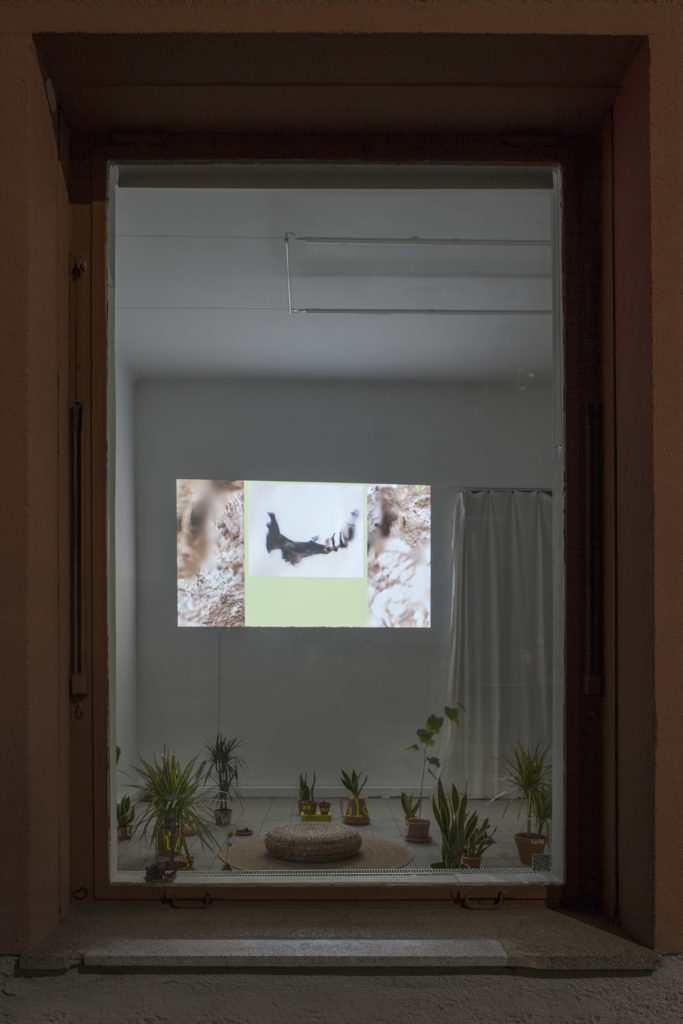
exhibition views: Mz* Baltazar’s Lab, 2022
all photos: Janine Schranz
videostills
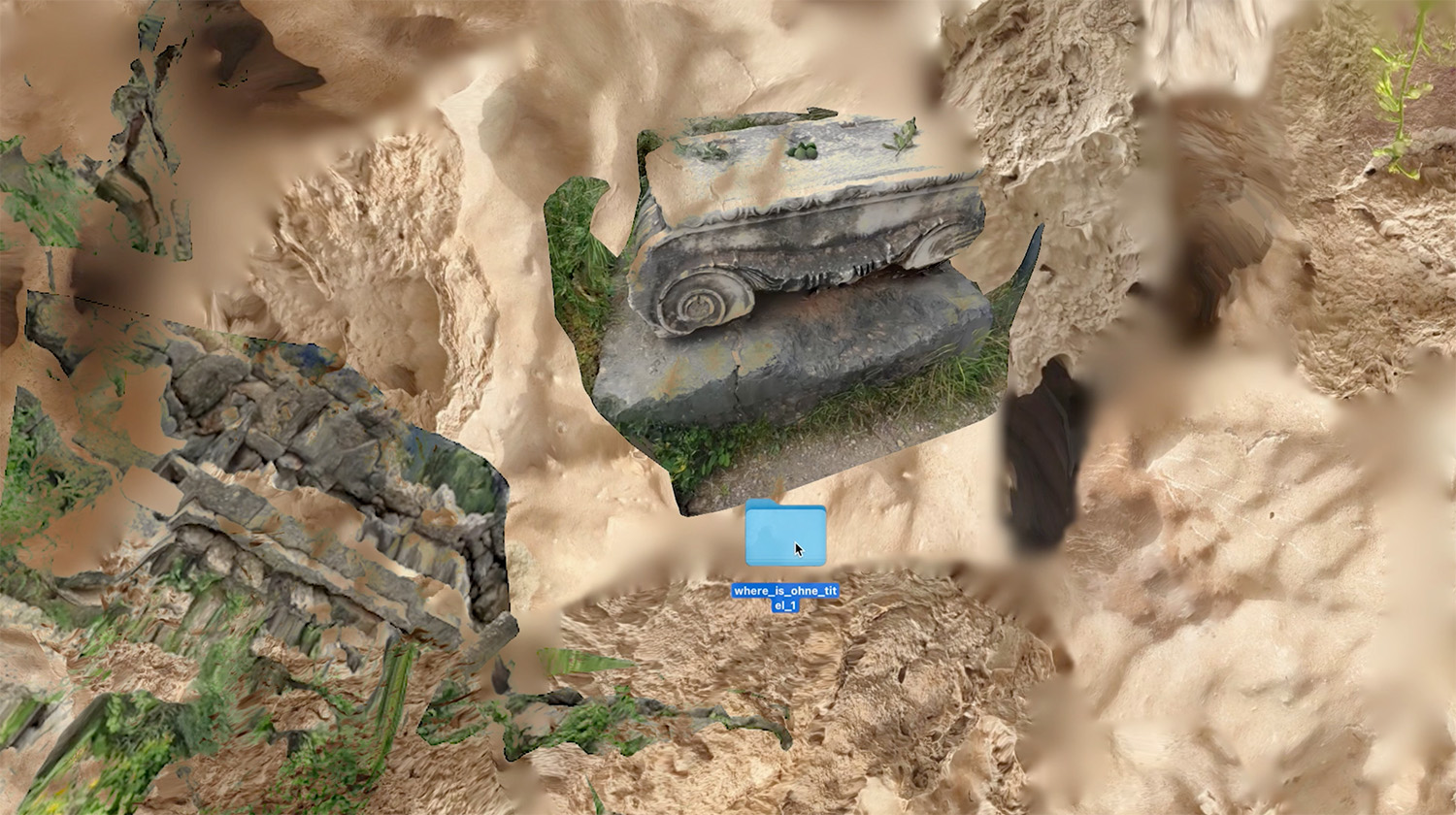

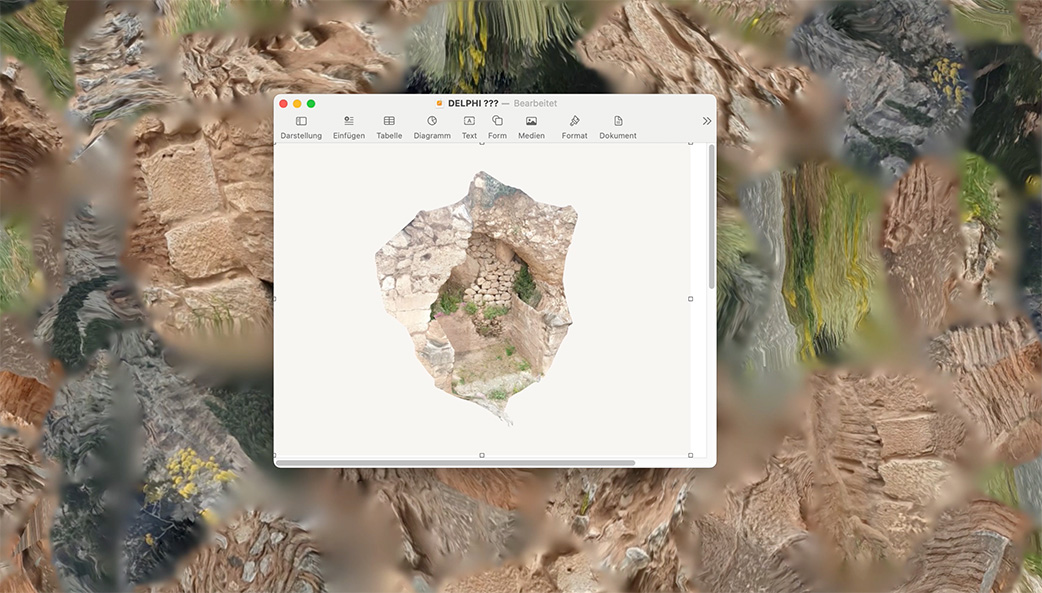
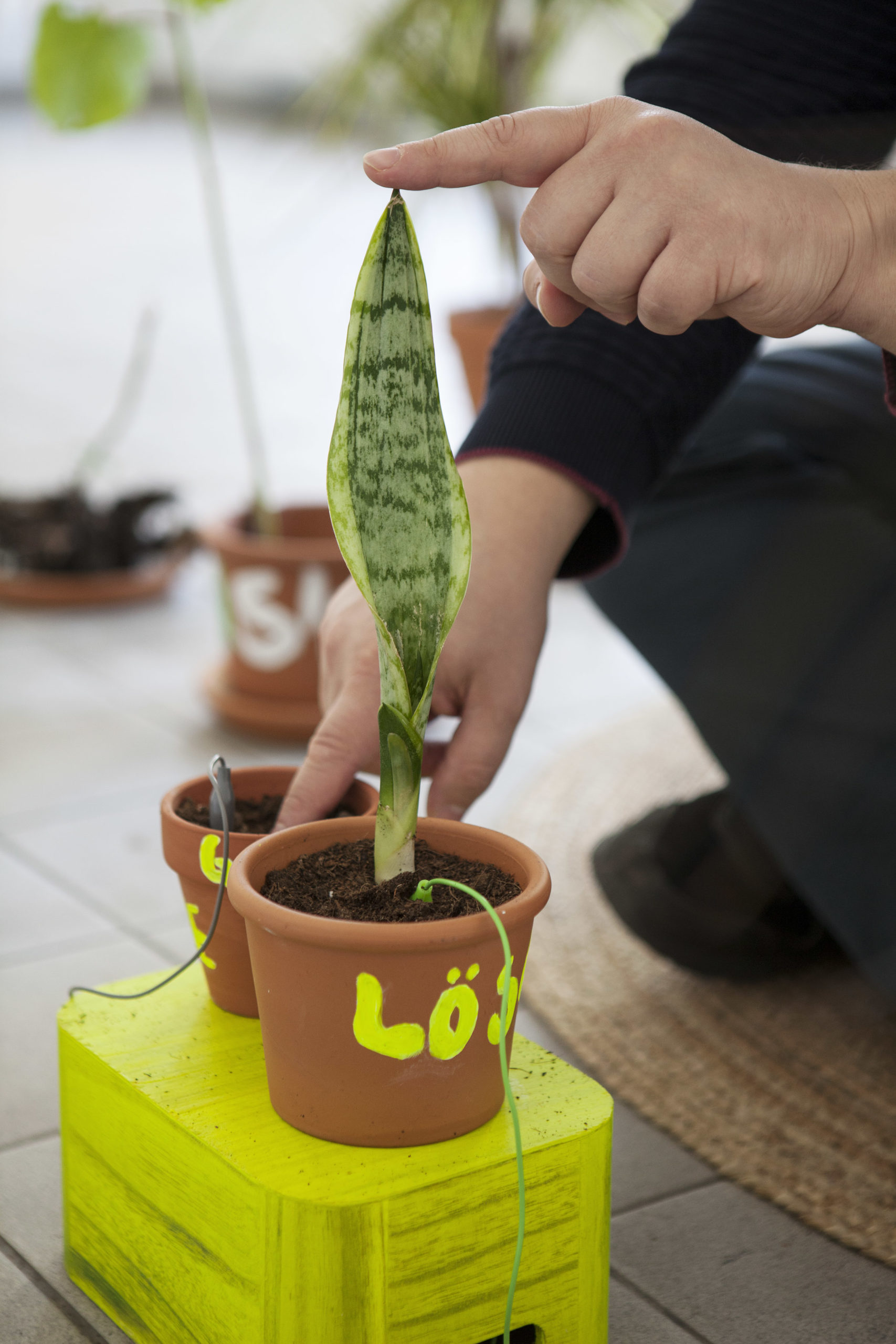
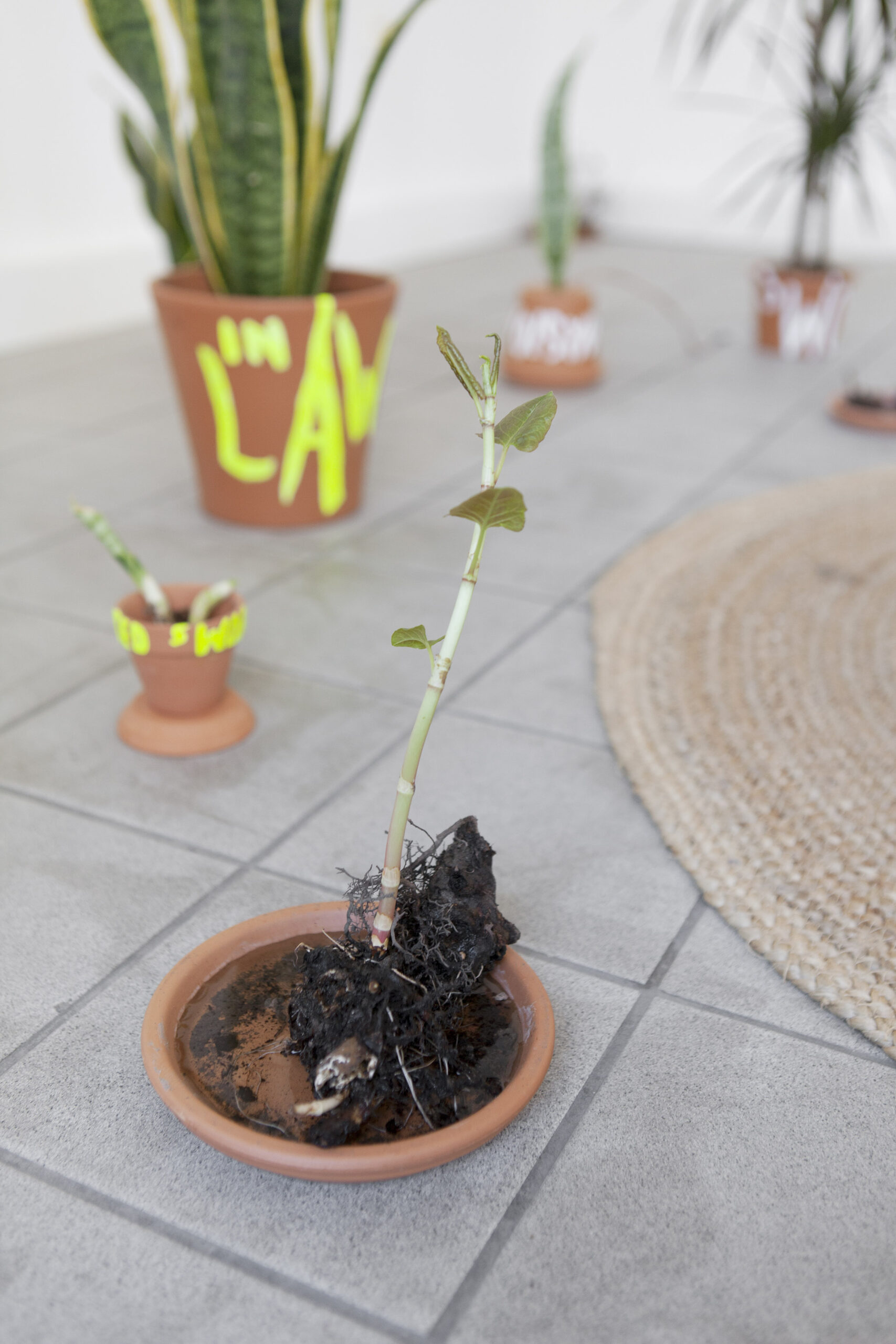
documentation – interaction in the installation

